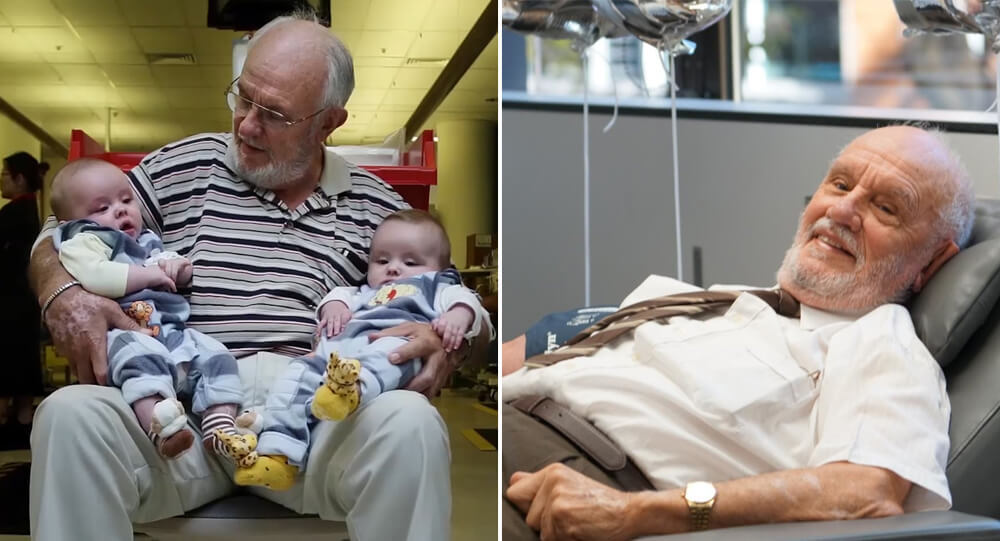
Considered one of Martin Luther King Jr.’s crowning moments in building racial equality, he was accompanied by Annie Lee Cooper, without whose tireless efforts many Black Americans might not have the right to vote today.
When Annie Lee Cooper was waiting in line to cast her ballot outside the Selma Dallas County courthouse in January 1965, a police officer approached her and tried to stop her from performing her civic duty. Cooper is notorious for punching the cop in the face after he prodded her in the neck with his baton.
Despite being mostly absent from the typical American classroom, Cooper gained some notoriety when Selma, the Academy Award–winning film that featured her tale, was released in 2014. Only four years had passed since her death at the age of 100 when the movie came out, and none other than Oprah Winfrey brought her story to life.
This is the real-life story of activist, revolutionary, and champion of voting rights Annie Lee Cooper.
Annie Lee Cooper’s Childhood In Jim Crow America

Cooper, an only child of Lucy Jones and Charles Wilkerson Sr., was born Annie Lee Wilkerson in Selma, Alabama, on June 2, 1910. Cooper completed the seventh grade of school before quitting and moving in with one of her sisters in Kentucky. She later relocated to Pennsylvania.
Cooper was born during a perilous juncture in American history. No matter their socioeconomic standing, Black men and women were unable to vote in 1901 under the recently enacted Alabama constitution.
Legal experts concur now that the main aim of this constitution was to formalize white dominance in the state. However, white Alabamans at the time mostly accepted its conditions.
Cooper discovered that there were states where Black people could vote despite growing up in a state where they couldn’t. Cooper became motivated by this difference and set out on a quest to the voting booth.
Becoming A Civil Rights Activist

To take care of her elderly mother, Annie Lee Cooper traveled back to Selma, Alabama, in 1962. However, when she arrived, she discovered that Black men and women continued to be denied the right to vote.
In order to mobilize Black men and women to petition for voting rights, American civil rights activist Bernard Lafayette and his wife Colia Liddell arrived in Alabama about the same time. The Student Non-Violent Coordinating Committee (SNCC), which the newlyweds were representing, appealed to young Cooper right away.
Cooper would repeatedly recount how, in order to register to vote in Alabama, she had to take a “voting test,” a Jim Crow-era literacy test that was impossible to pass. However, she consistently failed the test, as was planned by the system each time.
“Once, I was in line starting at 7 a.m. but never managed to register,” she claimed.
Therefore, Annie Lee Cooper joined the SNCC in 1963, armed with the activist experience she had garnered through working with the Dallas County Voter’s League. Her day job dismissed her when they learned about her new activism.
Cooper, unfazed, took a position as a clerk at a motel. She subsequently joined the growing civil rights movement as an official member. The movement, which was characterized by nonviolent protest and nonviolent marches, was founded in large part to combat the dangers of white supremacy in the American South.
When Annie Lee Cooper attempted to register to vote in Selma, Alabama once more in January 1965, she earned her place in American history.
But white Sheriff Jim Clark stopped her when she arrived at the polling place. It would turn out to be among the Sheriff’s biggest errors of judgment.
Cooper, unfazed, took a position as a clerk at a motel. She subsequently joined the growing civil rights movement as an official member. The movement, which was characterized by nonviolent protest and nonviolent marches, was founded in large part to combat the dangers of white supremacy in the American South.
When Annie Lee Cooper attempted to register to vote in Selma, Alabama once more in January 1965, she earned her place in American history.
But white Sheriff Jim Clark stopped her when she arrived at the polling place. It would turn out to be among the Sheriff’s biggest errors of judgment.
Punching Sheriff Jim Clark

James Gardner Clark Jr., the sheriff of Dallas County, Alabama, has a track record for being a rough individual. He enlisted the Ku Klux Klan to prevent Black Alabamans from casting ballots, beat and detained peaceful protesters with great violence, and even stabbed Black people with cattle prods.
He was praised for his “publicity services delivered” after The Washington Post released pictures of Clark assaulting civil rights activist Amelia Boynton.
When Clark ultimately passed away in 2007, The Washington Post’s obituary almost seemed to celebrate his passing due to his abhorrent actions. “Mr. The story stated that Clark “seemed to relish confrontation.” “He at least struck C.T., an organizer. He then claimed he did not remember punching Vivian in the face, although an X-ray revealed a linear fracture in a finger on his left hand.
But when Clark prodded Cooper’s neck with his billy club in January 1965, presumably as a prelude to something worse, he received a taste of his own medicine. In response, Cooper gave him what is now jokingly referred to as a “two-piece and a biscuit.”

She recalled, “I was just standing there when his deputies told a man with us to move and when he didn’t, they tried to kick him.” “That’s when Clark and I started arguing. I make an effort to act nonviolently, but I can’t say I wouldn’t act the same way again if they treated me harshly like they did this time.
Cooper was detained for clocking Sheriff Clark, probably in accordance with the law. But she was almost immediately released after Clark threatened to beat her while she was in custody.
It wasn’t in vain that she confronted him. The Voting Rights Act of 1965 was eventually approved shortly after, thanks to the tireless efforts of Cooper, her contemporaries, and Martin Luther King Jr.
Annie Lee Cooper’s Death At 100

In her final years, Cooper lived a very calm and laid-back life in Selma, where her hometown named a roadway Annie Cooper Avenue in honor of her commitment to the civil rights fight on the occasion of her 100th birthday.
Her loving mother had lived to be 106, so according to her relatives, Cooper planned to live many longer.
Sadly, Annie Lee Cooper passed away on November 24, 2010, at the Selma, Alabama, Vaughan Regional Medical Center. Although she didn’t survive very long after turning 100, her impact on American history will never be forgotten.

How 'Brad's Drink' Became Pepsi-Cola
Pepsi was first introduced as “Brad’s Drink” in New Bern, North Carolina, United States, in 1893 by Caleb Bradham, who made it at his drugstore where the drink was sold. It was renamed Pepsi Cola in 1898, named after the digestive enzyme pepsin and kola nuts used in the recipe.

Couple reunites after 60 years apart
A Russian couple were reunited after being separated for 60 years. They were married for 3 days when the husband left to join the Red Army. They were unable to find each other until 60 years later when they randomly visited their hometown on the same day.

Mom hears son's heartbeat 3 years after his death when she meets organ recipient
She agreed to donate her son's organs after his sudden death in June 2013 at the age of 7 months. The grieving mother was able to listen to her late son’s heart beating inside the little girl who received the organ after his death.

Man's Blood Helped Save Millions of Babies
Australian blood donor James Harrison has been one of our most impressive and valued donors, having donated for 60 years. Know his story, how he was a pioneer of our Anti-D program, and why this matters.

Inspiring story of Emma Schols who Saved Her Six Kids From A Burning House
Emma Schols, a Swedish mother, saved all six of her children from a devastating house fire in 2019, running from room to room through flames while bleeding and losing skin. Against all odds, she survived with severe burns covering 90% of her body.

Unique Dining table with a hole for your cat to peek and join you dinner.
Dinos, a Japanese internet shop, has launched a new range of cat furniture, which includes this oak table with a hole in the middle and a perch underneath. It places your cat companion in the center of the table, making your cat the main focus of your meal, as it should be, because cats are the true proprietors of “your” home.

The beauty and uniqueness of Fukang Meteorite
This Fukang meteorite is around 4.5 billion years old and weighs more than 2,000 pounds. It was discovered in China in 2014 and is assumed to have formed when our solar system initially formed.

Passenger with No Flying Experience Lands Plane in Florida: A Real-Life Aviation Miracle
A passenger with no flying experience landed a twin-engine plane in Florida after the pilot died mid-flight. With guidance from air traffic control, he safely touched down—a real-life aviation miracle caught on radar and radio.

A subway in Chongqing passes through a building (images)
A train has been constructed through an apartment complex in Chongqing, China. The 19-story residential structure is not only passed by the light rail passenger train, but it also serves as a transit stop. Apartment residents can simply get a ride from the sixth to eighth levels.

Paramedic Rescues Doctor Who Saved Him 30 Years Earlier
In 1981, a doctor helped save the life of a 3.2 pounds premature baby boy. Thirty years later, the boy, who had grown up to be a firefighter-paramedic, helped in saving the same doctor from a car accident.

A story of a man Survived Inside Sunken Ship For Three Days
A man survived a sunken ship for nearly three days, 279 feet underwater and in complete darkness, while listening to fish eat the bodies of his shipmates.

Water park in japan, ocean dome: Largest indoor water park in the world
The Seagaia Ocean Dome, located in Miyazaki, Japan, was the biggest indoor waterpark in the world. An "Ocean" six times the size of an Olympic pool, filled with 13,500 tons of unsalted, chlorinated water kept heated at 28 degrees Celsius and recognized as the largest simulated pool by the Guinness Book of World Records, measures 12,000 square meters of the sandy beach made from 600 tons of stone.

How hero parrot saved little girl who was choking on her breakfast
In 2008 Quaker parrot Willie alerted his owner Megan Howard when the little girl she was babysitting began to choke. Howard was in the bathroom when the parrot repeatedly yelled "Mama! Baby!" flapping his wings. Megan rushed and performed the Heimlich maneuver, saving her life. Willie received the Red Cross Animal Lifesaver Award.

Missing Masterpiece Discovered in the Background of ‘Stuart Little’
In 2009, Gergely Barki, an art historian, was watching the film Stuart Little (1999) when he spotted an original long-lost painting used as a prop. Called Sleeping Lady with Black Vase, this painting was the work of Hungarian avant-garde painter Róbert Berény. The painting had been considered lost after World War II.

People are freaked out because they keep finding 'help me' messages under the cap of Sobe bottles
With their bottle caps that said, "Help me, I'm trapped in SoBe factory," SoBe Beverage discovered the hard way that forced labor is serious business. This is an example of when humor can be overdone.

This whale tail sculpture saved a train that went off the rails
A train in the Netherlands failed to stop in time and broke through the emergency barrier. It's being held up by the statue of a whale's tail.

The accidentally discovery of Riace bronzes
Stefano Mariottini was snorkeling off the coast of Monasterace near Riace in 1972 when he noticed a human hand sticking out of the sand and called the police, thinking it was a corpse. It was actually two statues of "Warriors from Riace" - 5th century BC Greek bronze statues.

Estonians save a wolf from the ice by mistaking it for a dog
Two young construction workers in Estonia discovered what they thought was a dog caught in a frozen lake. They carried it to their car and brought him to an animal shelter, not realizing it was a wolf.

Troy Leon Gregg: the death row inmate murdered the same night he escaped
In July 1980, Troy Leon Gregg escaped from Georgia State Prison the night before his execution. However, he was killed in a fight in a bar just a few hours later.

'Super obedient' lookout parrot trained by Brazilian drug dealers is seized by police
In 2019, police in Brazil seized a 'super obedient' lookout parrot trained by drug dealers. According to reports, the bird had been taught to alert criminals to police operations by shouting: "Mum, the police!" As soon as the police got close, he started shouting.

Drive-Thru Weddings in Las Vegas: The Ultimate Fast, Fun, and Legal Way to Say “I Do”
Inspired by fast food convenience, Las Vegas offers drive-thru weddings where couples can legally marry in under 5 minutes—without leaving their car. Some chapels even offer curbside Elvis impersonators and 24/7 ceremonies, complete with “to-go” marriage licenses.

Frank Lentini, The Three-Legged Sideshow Performer
Francesco Lentini was a man with three legs, four feet, sixteen toes, and two sets of functional male genitals. He worked for the circus and lived to be 78 years old.

A woman who had been lost since she was a newborn 51 years ago was said to have been spotted
A woman who had been lost since she was a newborn for 51 years was reported to have been sighted.

The world’s longest flight spent more than two months in the air
Roberts Timm and Jim Cook, two pilots, flew an aircraft for more than two months without landing in 1958. Matching the speed of a truck moving down the road to refuel. A mattress for sleeping, a small steel sink for personal hygiene, the removal of most interior fittings to reduce weight, and a basic autopilot were among the improvements.

Billy Ray Harris: A Story of Kindness and Honesty
In 2013, a homeless man named Billy Ray Harris discovered a $4,000 engagement ring in this cup. A woman had dropped while giving him some change. He returned the ring to her two days later. To thank him for his honesty, she set up a fund with the goal of raising $4,000 for him. It earned more than $185,000.


























